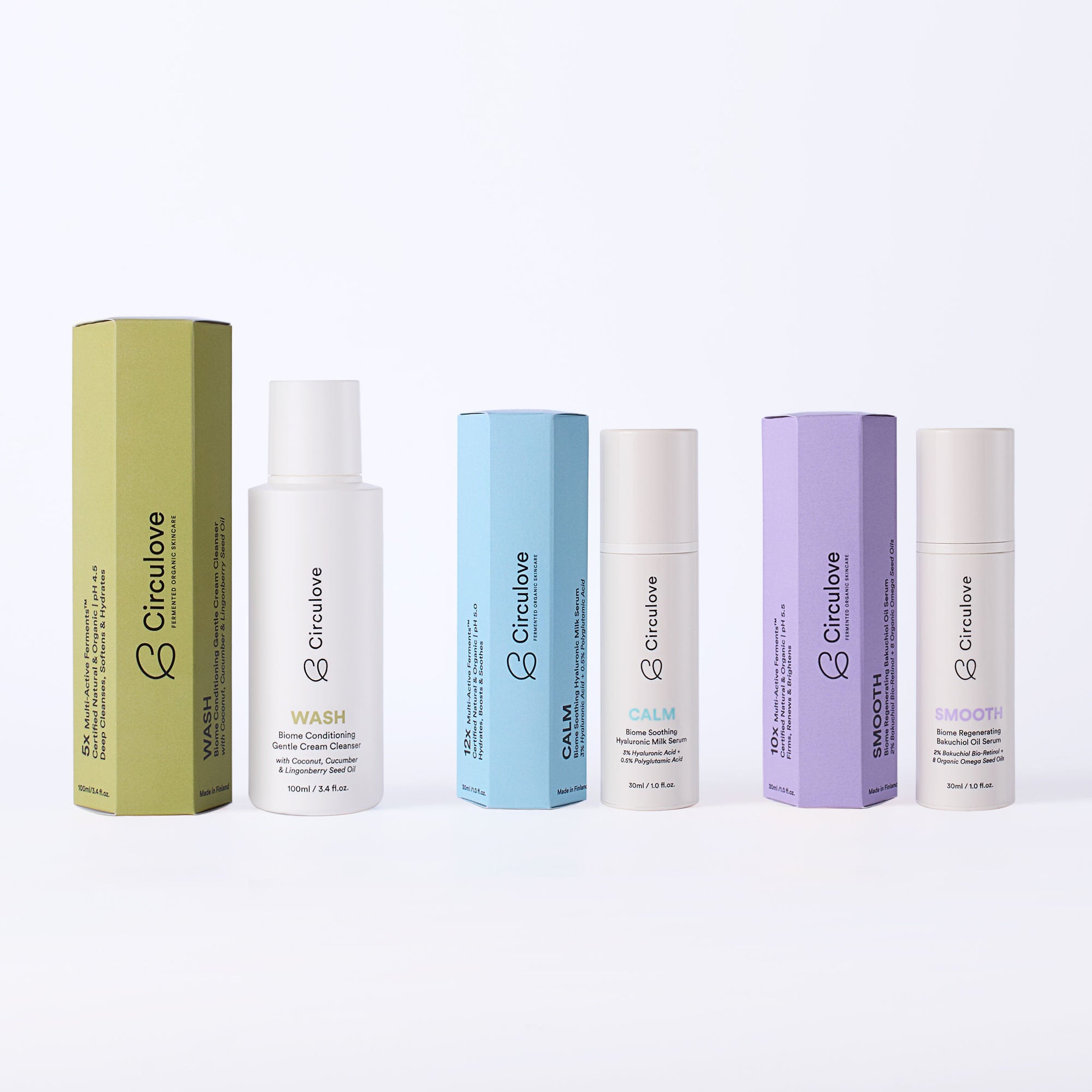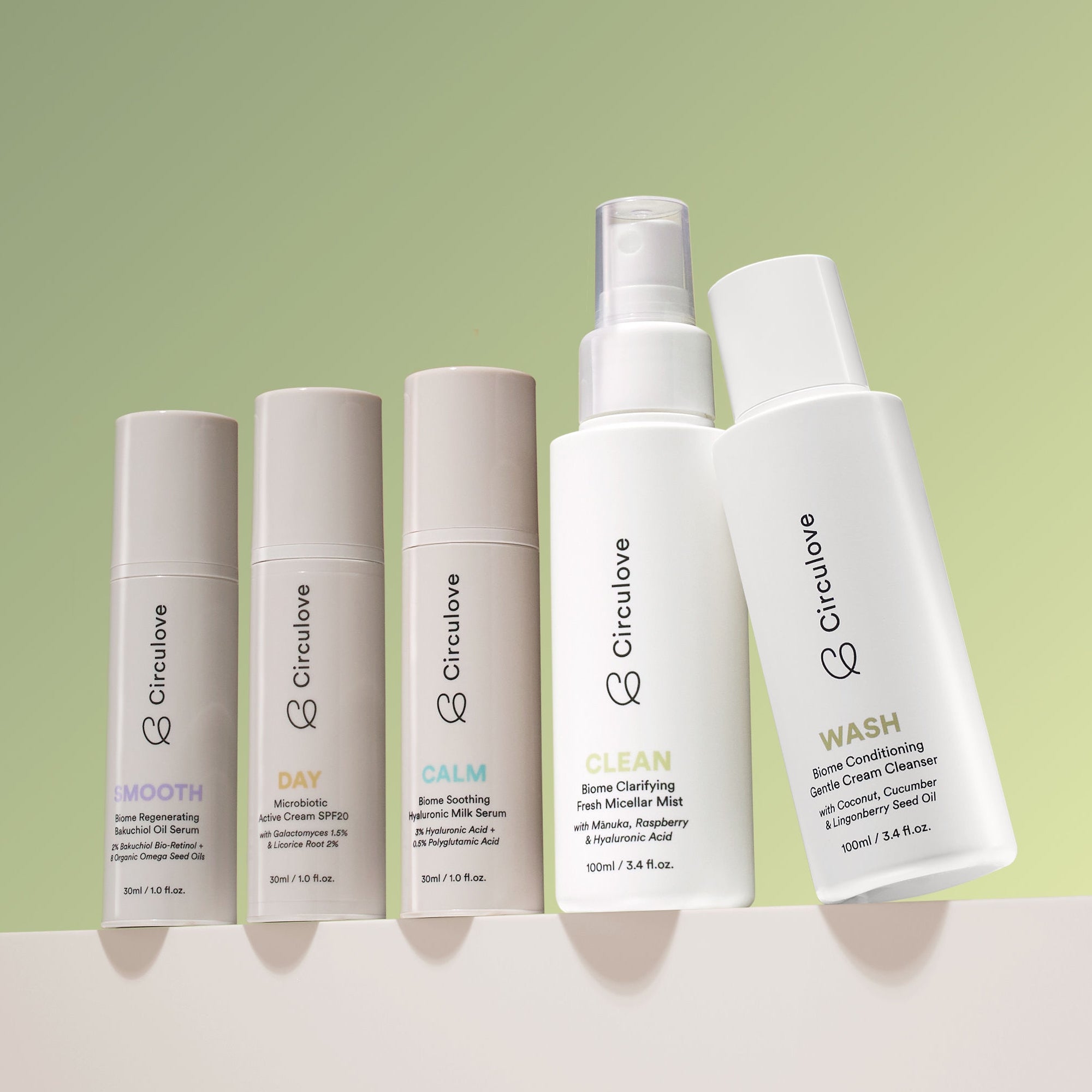How do you know your skincare works?

This is one of the most difficult questions, isn’t it? Here are some easy tips from our skincare experts.
- What really makes product work
- Don’t buy into the hype – pay attention to the order of ingredients
- How are your skincare products formulated?
- When can I expect results?
- Stick to simple basics - certified natural cosmetics
1. What really makes products work?
The first thing you need to know is that what makes a product work efficiently and safely is a combination of the following factors:
- What ingredients are in the product
- The amount of these ingredients in the formula
- How the product is formulated and ingredients treated in that process
You need all these 3 factors for the product to work efficiently. If one element is missing, there would be a substantial decrease in the performance. The first thing you want to do when selecting a product is to analyze the ingredients list.
2. Don’t buy into the hype – pay attention to the order of ingredients
Good looking packaging and perceived popularity are sometimes easy traps that we fall into, and we shouldn’t hold too much weight or value into that when we select what’s good for our skin. Be sure you are not paying just for fancy packaging, magic ingredients and heavy advertising budgets, and above all, read the product label carefully.
A basic understanding of how cosmetic labeling works will definitely help you choose the best skin care products. Ingredients will be listed in order of highest to lowest concentration. The INCI exists to help create a standardized language of ingredient names to be used on labels around the world.
Basic thumb rule: look for the first 5 ingredients, because the first 5 listed on a label have the highest percentages, they indicate the performance of a product. Next most important is the percentage of active ingredients. Ask from your preferred brand if they are able to answer this question.
Did you know? How toxic an ingredient is depends on where in the world you are. While the EU bans more than 1,300 harmful ingredients from cosmetics, beauty is one of the least regulated industries in the US where only around 11-30 harmful ingredients are banned (by the FDA).
3. How are your skincare products formulated?
How skincare products are formulated is the most difficult task for consumers to find out. This is important, since while the presence of active ingredients is certainly beneficial, they and their amounts are not enough. The formulation plays a huge role. For example, how oils are extracted and how pure they are play a crucial role from a product efficacy and skin compatibility point of view.
Similar to this is the biotechnology of skincare formulas - once an ingredient is fermented, its microbes break down into smaller, more absorbable molecules. This makes these ingredients much more efficient at performing their job. The fact that fermented ingredients are able to mimic our cell functions also means that there is less of a chance of adverse reactions.
This is why it is good to avoid purchasing from DIYers, when it comes to skincare. You want someone with a strong natural chemistry background and years of experience to formulate effective cosmetics. Try to find out information about how your skincare is formulated. If there is nothing on web pages, most probably this information does not exist, which is a red flag.
Did you know? The purity of cosmetics ingredients is allowed to be only 70% in contrast to food-grade ingredients which are 99,8% pure. Our skin is our largest organ and It’s also very absorbent. The issue here is that most of us don’t think about our skin this way. If you put something on your skin, that product gets absorbed into your skin.
4. Try first – unwanted reactions?
When trying a new skincare product the first time, don’t apply it directly on the face – do a patch test first to be sure. Before you start using a new product, place a small amount on the inside of your elbow and wait 48 to 72 hours. If you notice no redness, swelling, itching, or burning on that spot, it’s OK for you to start using.
It’s also good to be somewhat patient. The state of your skin may become worse the first day you decide to pamper your skin with natural products. You may experience unpleasant reactions such as dry skin, oily skin, rashes, red patches, shredding or even large pores. Don’t worry, though – this is called the rebound effect - as these symptoms might not last. There are different factors that influence the length of time your skin takes to find its natural balance. Such as stress level, diet, skin problems or your skin type may affect how fast your skin adapts. Also, if you’re using several products and applying them all at the same time, this may cause problems. Try instead applying them at different times (for example, apply one product in the morning, the other at night).
Starting with skin reset (kinda similar to fasting) by using only a mild, pH-balanced cleanser without any strong serums or face creams for a week to calm your skin before going back to a more comprehensive skin regimen is also a good practice every now and then.
Did you know? Fragrance can be called a “cluster ingredient”, and can be anything up to 4,000 different chemicals. They never have to be disclosed due to proprietary interest or intellectual property. Added fragrance formulas are widely linked to allergic reactions and can cause aggravated skin conditions such as dermatitis as well as respiratory conditions.
5. When can I expect results?
As a general rule, it takes about 4 weeks for the outer layer of your skin, the stratum corneum, to renew itself. Our age and particular skin cycle also affect how long it will take for the product to work. In our 20s, our skin cells take about 14 to 21 days to regenerate. In middle age, it takes about 28 days for the cells to regenerate. And as we move to our 50s and 60s, our skin cycle slows even further to about 60 to 90 days.
So it typically takes about 3 to 6 weeks for skin care products to really work and you start seeing an improvement. This time can be shorter or longer depending on the type of product you use and the severity of your skin issues. The more work it needs to be done to heal your skin, the longer it will take to see the improved results.
This is the reason why it’s important to invest in a good, regular skin care routine that works for you, even if it means spending a little bit more. The benefits of a good skin care routine will surely outweigh the cost over a longer period of time.
6. Stick to simple basics - certified natural cosmetics
Superfluous use of products and needless ingredients can irritate your skin causing minor skin damage. Stick to the basics to give the skin what it really needs. That’s the reason why the routines exist: cleanse, moisturize, protect and nourish.
Some products may appear cheaper and some more expensive, but what you need to prioritize is quality. Stick to natural and clean products. Always choose certified natural cosmetics to avoid nasty surprises.
And to make it easy, look for multipurpose products. Always think about how many products you really need, and it’s best to invest in a simple high-quality skincare routine you can stick to every day.
Here is our beauty advisor tip for simple yet high quality skincare routine:
CIRCULOVE
- Deep Cleanse: WASH Gentle Cream Cleanser
- Cleanse & Clarify: CLEAN Fresh Micellar Mist
- Soothe & Hydrate: CALM Hyaluronic Milk Serum
- Protect & Strengthen: DAY Active Cream SPF20
- Nourish & Moisturize: SMOOTH Bakuchiol Oil Serum
Appendix
Ingredients to avoid in traditional skincare - why to change in certified natural cosmetics
Our skin is our largest organ. It’s also very absorbent. The issue here is that most of us don’t think about our skin this way. If you put something on your skin, that product gets absorbed into your skin.
Here’s just a few but the most harmful ingredients that you want to stay away from. It pays to get to know the ingredients in your skincare products.
Traditional skin care products - not allowed in natural, certified skincare:
1. Parabens
Parabens are a prevalent ingredient in many everyday skincare and hair care products. You’ll see them listed as Methyl, Ethyl, Propyl, Benzyl, Butyl, Isobutyl or something similar.
2. Phthalates
BPA Bisphenol-A (BPA). Phthalates often creep into the formulas of many skincare products, particularly perfumed skincare products and deodorants. What you may not know is that there are also other types of phthalates and they’re not listed on any labels. This chemical is used to retain a perfumed scent but is widely linked to breast cancer and reproductive issues. Just like parabens, phthalates can too mimic estrogen.
3. Triclosan
Triclosan and triclocarban are antimicrobial chemicals added to provide antibacterial properties to cleansing and skincare products as well as soaps and deodorants. Unfortunately, it can irritate the skin and disturb thyroid and hormone functions. It has now also been banned in many countries in toothpaste, deodorant, sanitisers, liquid antibacterial soaps and mouth rinse.
4. Sodium Lauryl Sulfate (SLS) / Sodium Laureth Sulfate (SLES)
Unfortunately, this ingredient is in a lot of products, particularly anything that foams like skin cleansers. However, it is a powerful skin, eye and lung irritant. It is not an ingredient you want to be putting on your skin every day.
5. Polyethylene Glycol (PEGS)
An all-too-frequent feature in skincare formulas, PEGs are used to thicken skin care products. Unfortunately, they can also strip the skin of natural moisture and contribute to oily or greasy residue on the skin. PEGs come under many different numbers as well. So you can see them as PEG numbers.
6. Synthetic Colors
Few people tend to question the inclusion of “synthetic colors” in skincare products, but you really should. If you see the letters F, D or C, followed by a color or number, your skincare products contain synthetic colors. The problem is that these artificial ingredients come from petroleum or coal tar sources and are linked to several health issues.






